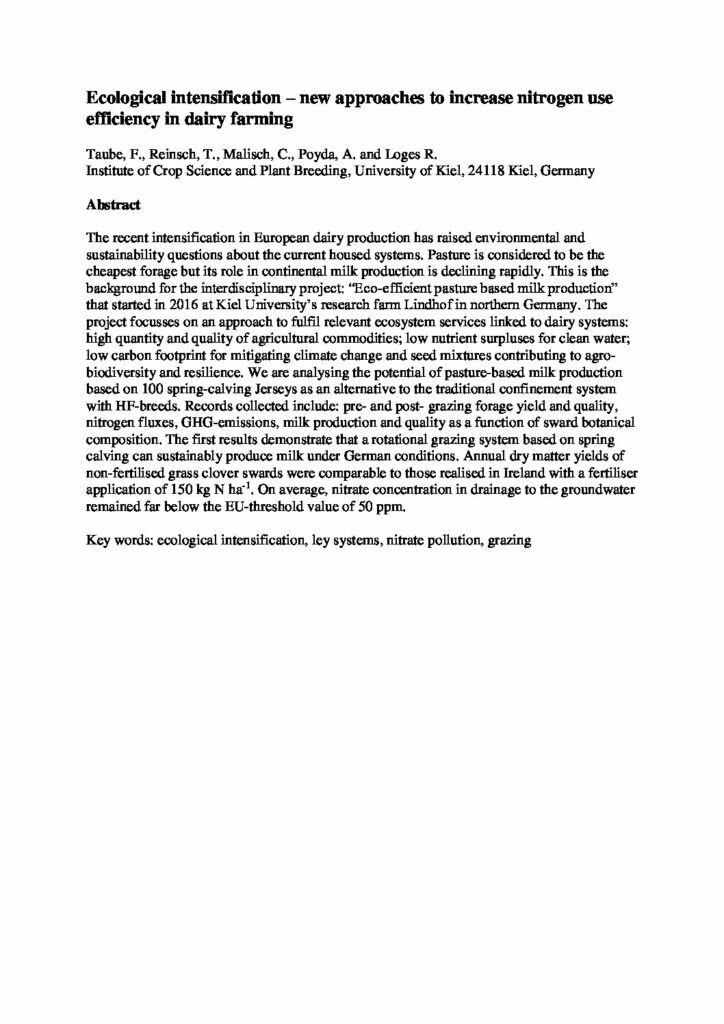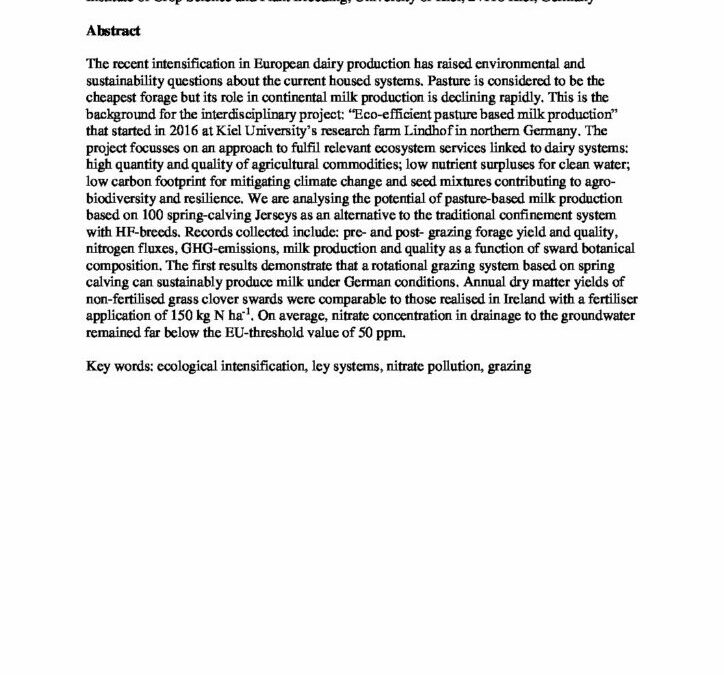Ecological intensification – new approaches to increase nitrogen use efficiency in dairy farming

The recent intensification in European dairy production has raised environmental and sustainability questions about the current housed systems. Pasture is considered to be the cheapest forage but its role in continental milk production is declining rapidly. This is the background for the interdisciplinary project: “Eco-efficient pasture based milk production” that started in 2016 at Kiel University’s research farm Lindhof in northern Germany.
The project focusses on an approach to fulfil relevant ecosystem services linked to dairy systems: high quantity and quality of agricultural commodities; low nutrient surpluses for clean water; low carbon footprint for mitigating climate change and seed mixtures contributing to agrobiodiversity and resilience. We are analysing the potential of pasture-based milk production based on 100 spring-calving Jerseys as an alternative to the traditional confinement system with HF-breeds. Records collected include: pre- and post- grazing forage yield and quality, nitrogen fluxes, GHG-emissions, milk production and quality as a function of sward botanical composition. The first results demonstrate that a rotational grazing system based on spring calving can sustainably produce milk under German conditions. Annual dry matter yields of non-fertilised grass clover swards were comparable to those realised in Ireland with a fertiliser application of 150 kg N ha-1 . On average, nitrate concentration in drainage to the groundwater remained far below the EU-threshold value of 50 ppm.
